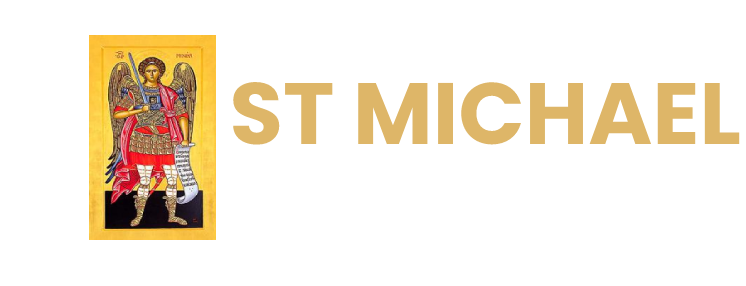Sermon – The Sunday of the Meat Fare 2021
PASTORAL SERMON
The Sunday of Meat Fare
By V. Rev. Timothy Baclig
March 7, 2021
The themes of love and judgment are often mentioned together in the Bible and in Christian prayers and hymns. For example in St. John’s epistle we read: God is love, and whoever lives in love lives in union with Him. Love is made perfect in us in order that we may have courage on the Judgment Day (I John 4:16-17).
In the Gospel of St. John we hear: For God so loved the world that He gave is only Son . . . God did not send His Son into the world to be its judge, but to be its Savior. Whoever believes in the Son is not judged; but whoever does not believe has already been judged (John 3:16-18).
In a petition heard in our Liturgy we hear the words: For a Christian ending to our life, painless, blameless, and peaceful, and a good defense before the fearful judgment seat of Christ, let us ask of the Lord… Jesus Christ is our “good defense.” He is our advocate and has provided the atonement for our sins by His voluntary sacrifice. Our petition is a plea for His love and mercy.
But you may ask what about all of the fearful descriptions of hell, fire and brimstone in the Bible? These are warnings in pictorial representation, just as they are found in icons. However, these images are not interpreted as geographic or physical places created by God for the punishment of human beings. They are admonitions with a clear and serious message: Life outside of the love of God results in evil, falsehood, hatred, guilt, alienation, and pain. Life apart from God leads to agony of darkness in which people torment themselves and each other. It is a spiritual hell created not by God but by the willful refusal to turn to God, Who is love, in order to be forgiven, cleansed, renewed and liberated.
How can the Lord of love and goodness be also the Lord of judgment? Is there an inconsistency in the images of God as a loving Father and God as a righteous Judge? The Church Fathers answered this perplexing difficulty by affirming that God is always a loving Father for everyone—both righteous and sinners. In this life, and in the life to come, everyone who is desirous of knowing God, experience the radiance of God’s love, however those who have separated themselves from God experience the same radiance of God’s love as fire of judgment—a “scourge of love,” as described by St. Isaac the Syrian.
God does not cause judgment at any time. He is not vengeful to evildoers nor does He prepare a place of punishment (Hell). This does not mean that Hell does not exist. It does. However, God is love and by His very nature He cannot do what is evil, hateful, or destructive to anyone. Judgment and hell are spiritual conditions of sin and darkness. Judgment results when someone is separated from God who is the source of light and life. Judgment also results when we willfully shut ourselves off from God’s redeeming love.
Through the Parable of the Last Judgment, Christ teaches us that heaven and hell pertain to the fulfillment of physical and spiritual needs. That fulfillment is determined by choices. Each day we make choices on a path to holiness or unrighteousness. These choices are directly related to our physical and spiritual well being. Christ taught us by His example and teaching that the main virtues of Christians are faithful obedience and loving service to God and to each other. Great Lent is a time for sorting out our real needs from the distortion of false needs. I call it “the Church’s forty-day rehabilitation of the soul.” By bringing shaper focus upon what is necessary from what is not, we can in fact be able to do more in helping others. This is precisely the point of today’s Gospel lesson.
Topics:
sermon



